
Chapter 9. Chapter 9: Evolution and Behavior
Review & Rehearse

Instructions
Review the visual summaries and answer the essay questions below.
Make sure to enter a brief response that completely answers each question and explains your reasoning. When you click "Submit," you will be provided instant feedback, allowing you to check if your response is correct.
(This activity contains 16 total essay questions. Each new question will be revealed once you complete the preceding question.)
1.


1. What would you expect to happen to a trait that increases an individual’s reproductive success relative to that of other individuals?
2.
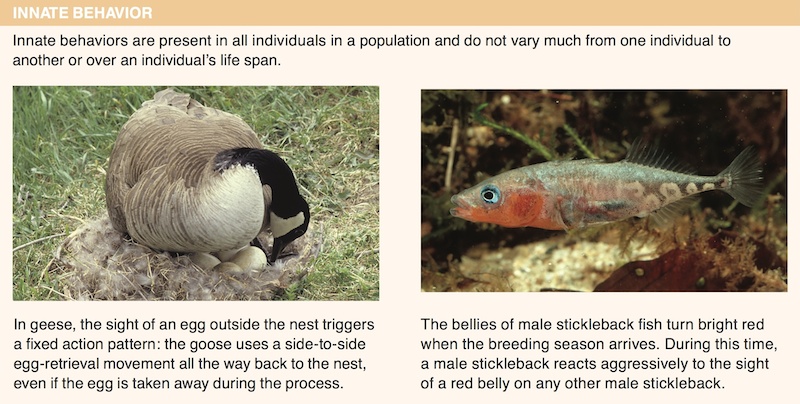
2. Why is egg retrieval behavior in geese referred to as a fixed action pattern?
3.
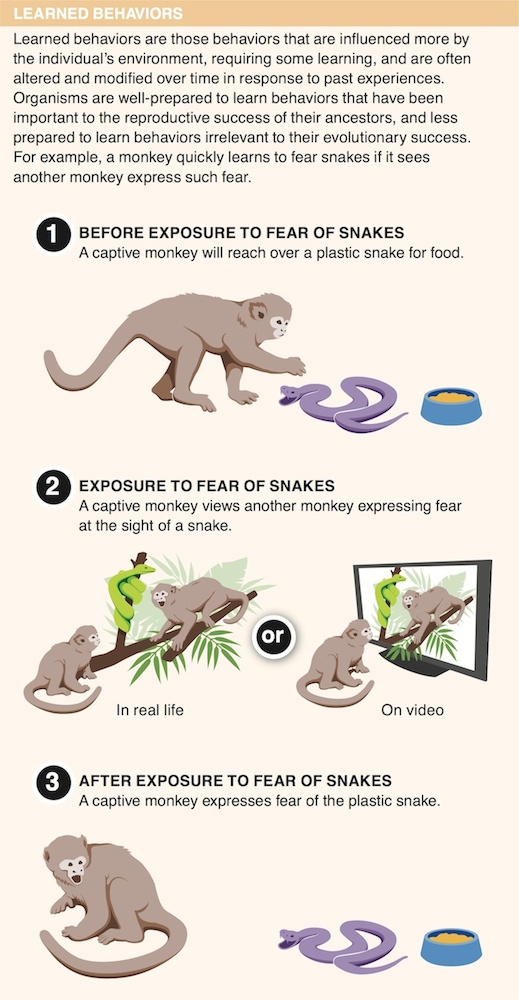
3. Which type of behaviors are we most well prepared to learn?
4.
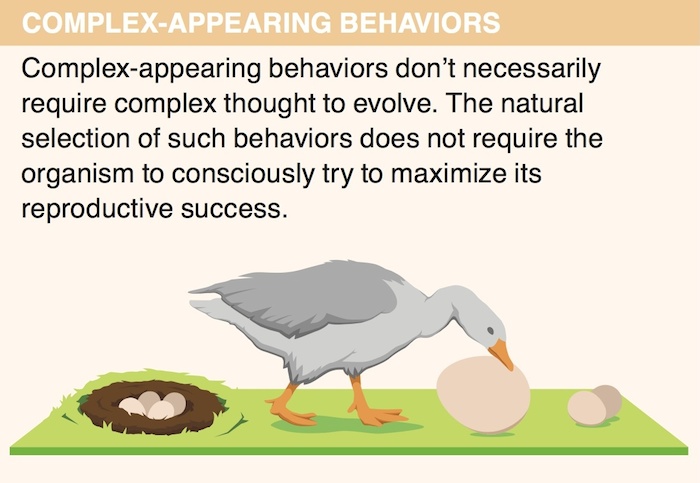
4. If an over-sized egg—too big to be a goose egg—is placed next to a goose’s nest, what will the goose do?
5.


5. Virtually all of the apparent acts of altruism observed in the animal kingdom prove to have evolved as a consequence of what factor?
6.
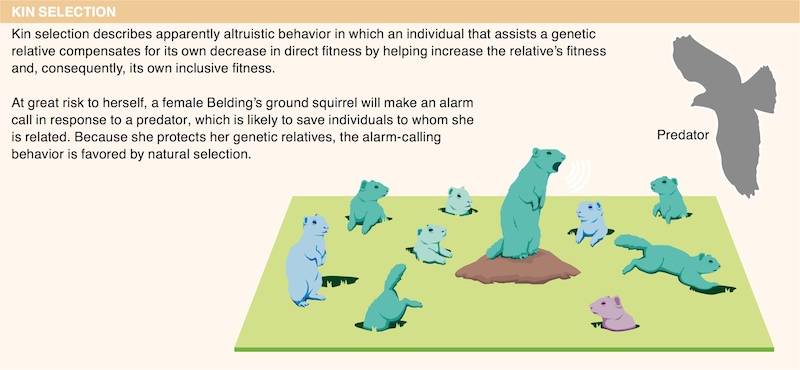
6. Why is the risky behavior of alarm calling ever an evolutionarily advantageous behavior for a Belding’s ground squirrel?
7.
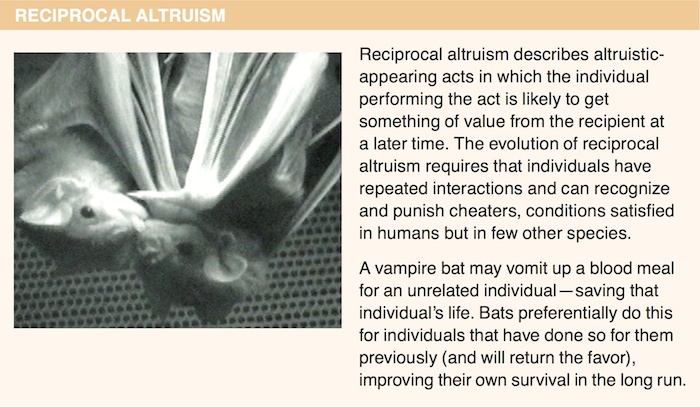
7. Describe two conditions that are essential if reciprocal altruism is to evolve.
8.
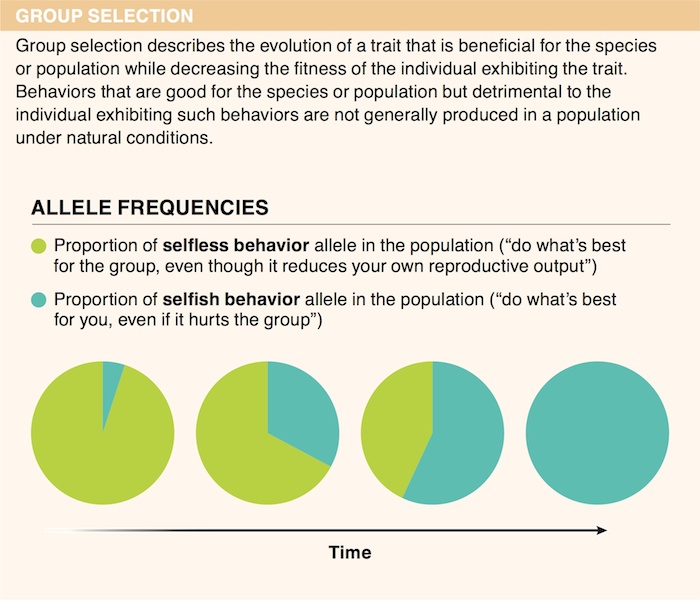
8. An organism in an environment that differs from the environment to which it is evolutionarily adapted may exhibit maladaptive behaviors. Using an example, explain why.
9.
9. Will natural selection favor a behavior that leads to a better outcome for the population but not for the individual? Explain why or why not.
10.

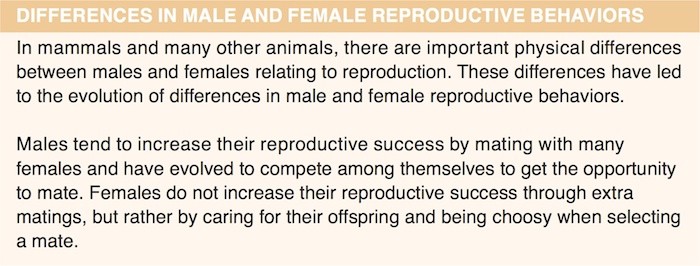
10. Describe two reasons why, in mammals, males and females initially make unequal energetic investments in reproduction.
11.
11. Compare and contrast the stages of the mammalian reproductive process in which males and females are most vulnerable.
12.
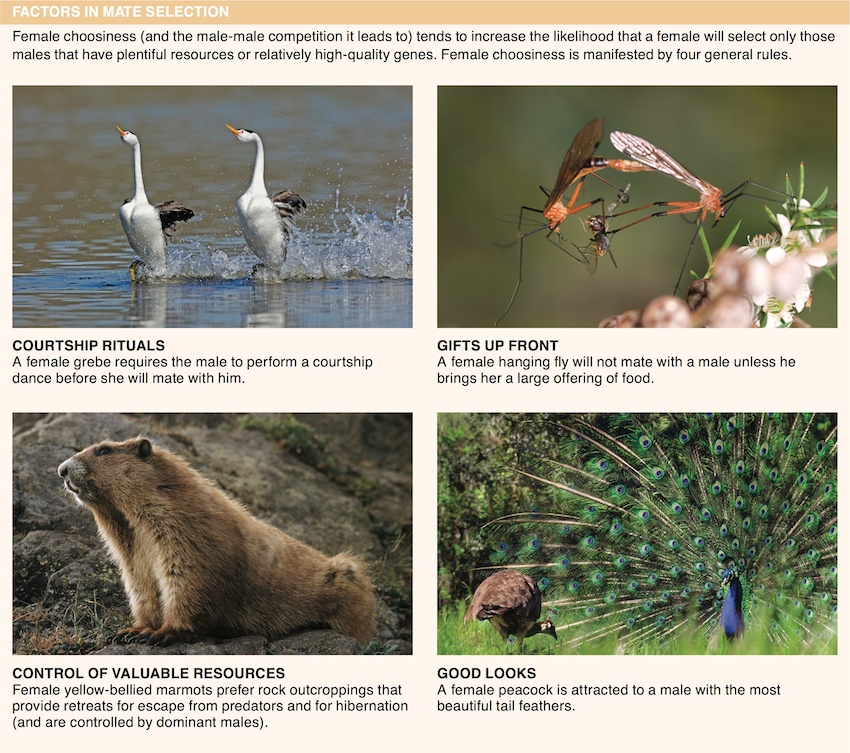
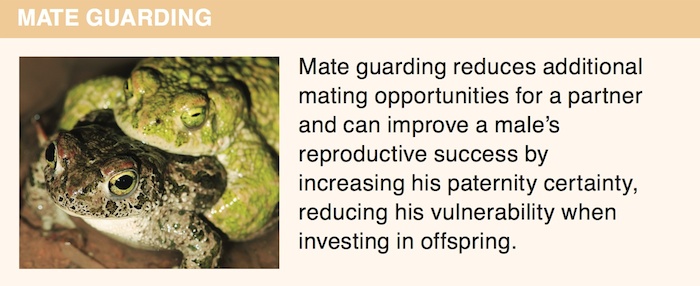
12. Female deer tend to choose as a mate a male deer possessing large, prominent antlers. What does the size of the antlers signify to the female?
13.
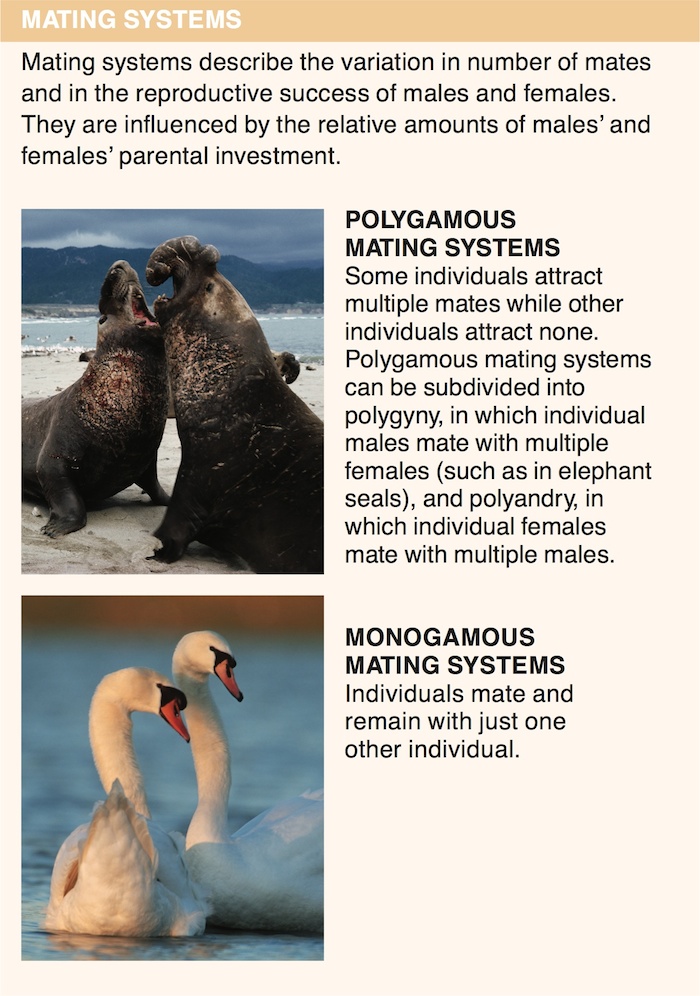
13. In a polygynous mating system, many males may produce no offspring. Why?
14.
14. Describe the three types of mating systems.
15.
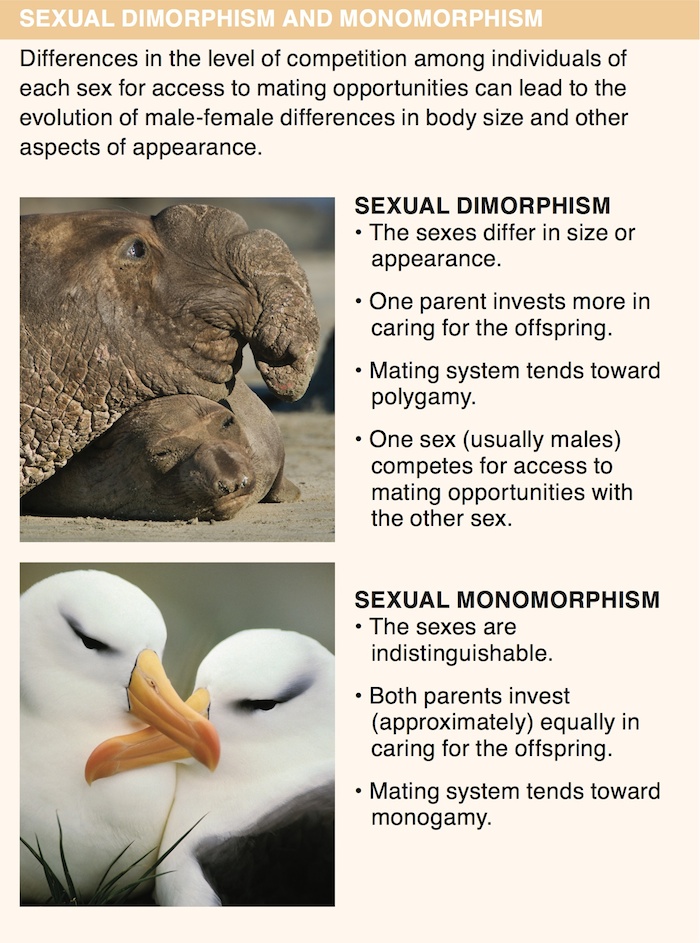
15. Female moorhens are larger and more aggressive than males. They also compete among themselves for access to the smaller, fatter males. Which sex do you think provides more parental care? Explain your answer.
16.

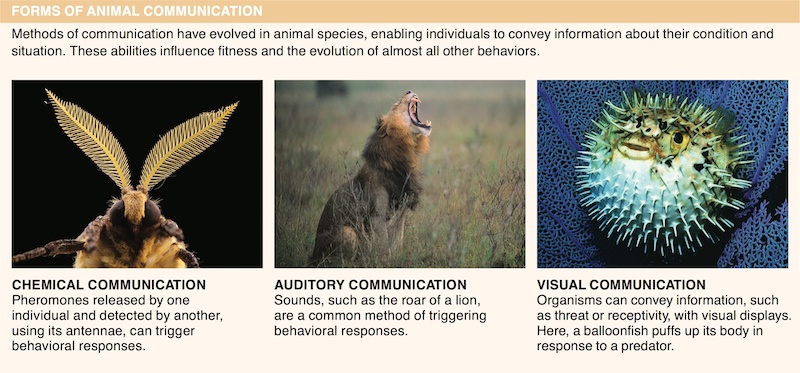
16. Why are “honest signals” so named?
Activity results are being submitted...